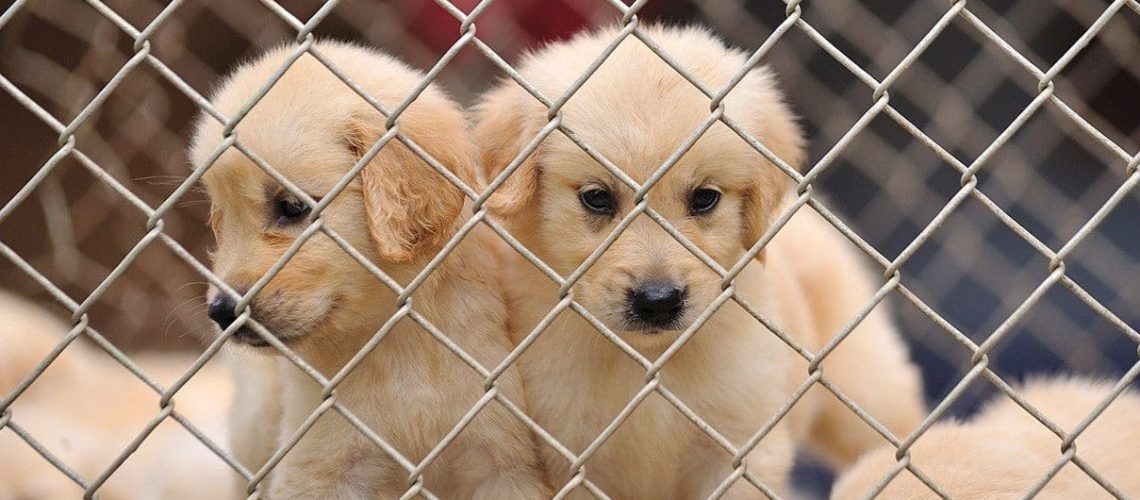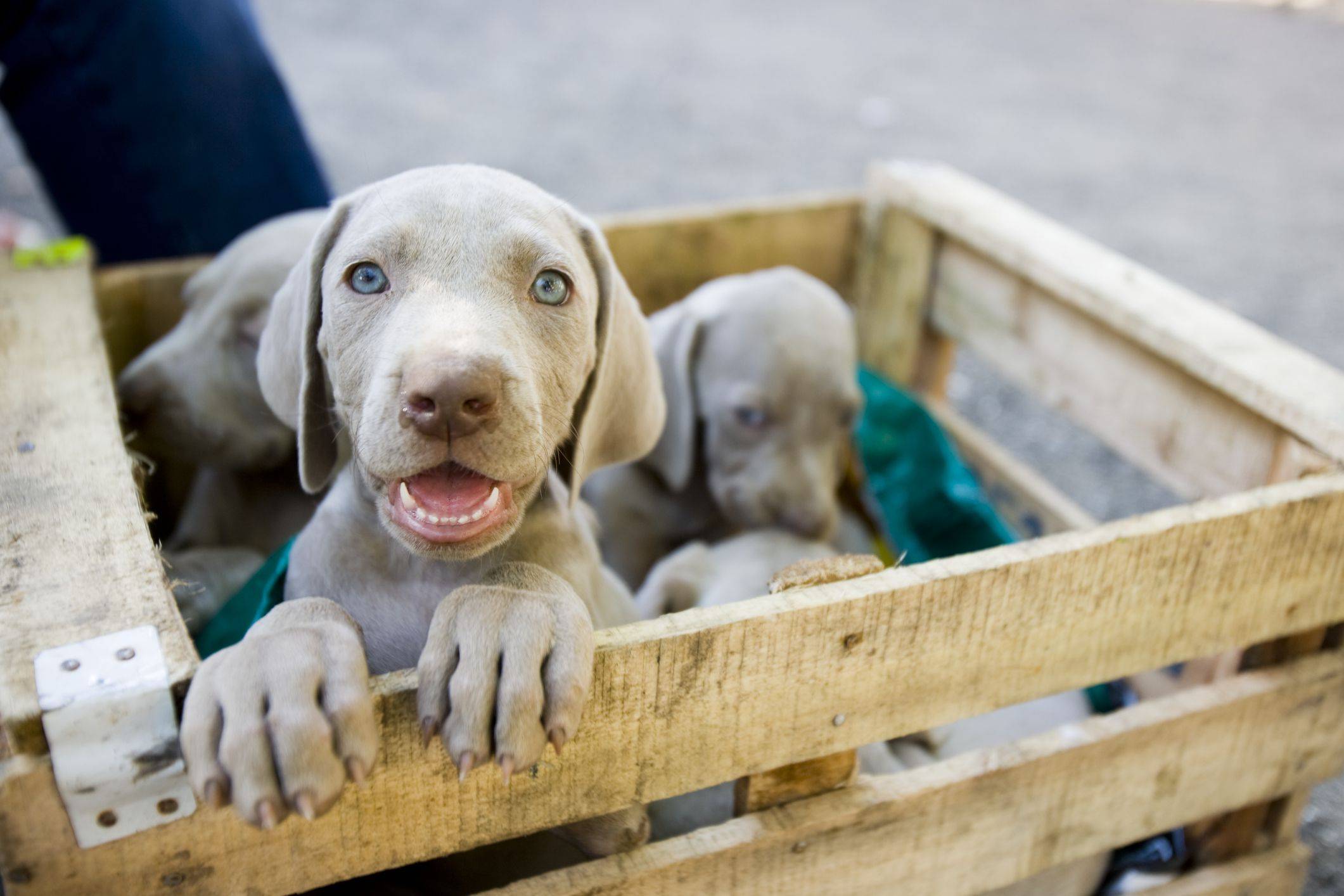Puppy mills, a dark reality in the world of pet breeding, have been shrouded in controversy for years. This introduction aims to shed light on the truth about these establishments and their impact on innocent animals.
Key Takeaways:
- Puppy mills are large-scale commercial breeding facilities that prioritize profit over the welfare of the animals.
- Animals in puppy mills often live in overcrowded and unsanitary conditions, leading to various health issues.
- Puppies from puppy mills are more likely to have genetic disorders and behavioral problems due to irresponsible breeding practices.
- Buying a puppy from a pet store or online can unknowingly support the cruel puppy mill industry.
- Adopting from shelters or reputable breeders is a responsible choice that helps combat the existence of puppy mills.
What are puppy mills and why are they a concern for animal welfare?
Definition of Puppy Mills
Puppy mills are large-scale commercial breeding facilities where dogs are bred in overcrowded and unsanitary conditions. These facilities prioritize profit over the well-being of the animals. Dogs in puppy mills often live in small cages, without proper socialization or veterinary care.
The Concern for Animal Welfare
Puppy mills raise serious concerns for animal welfare. Dogs in these facilities are treated as commodities rather than living beings with emotions and needs. They suffer from physical and psychological distress due to their living conditions.
Physical Distress:
Living in cramped cages can cause numerous health problems for dogs. Lack of exercise and improper nutrition can lead to obesity and weak muscles. The absence of proper veterinary care can result in untreated illnesses, infections, and injuries.
Psychological Distress:
Dogs in puppy mills experience extreme stress and anxiety due to the lack of socialization, human interaction, and mental stimulation. They may develop behavioral issues such as fearfulness, aggression, or excessive barking.
It is crucial to raise awareness about puppy mills because every dog deserves a safe and loving home where their well-being is prioritized. By understanding the issues associated with puppy mills, we can work towards ending this cruel industry and promoting responsible breeding practices that prioritize animal welfare.
Understanding the difference between puppy mills and responsible breeders
What is a puppy mill?
A puppy mill is a commercial breeding facility that prioritizes profit over the well-being of the dogs. These operations often prioritize quantity over quality, with little regard for the health or genetic soundness of the animals. Dogs in puppy mills are typically kept in overcrowded and unsanitary conditions, lacking proper socialization and veterinary care.
What is a responsible breeder?
On the other hand, responsible breeders prioritize the health and welfare of their dogs above all else. They carefully select breeding pairs based on genetic health, temperament, and conformation to breed standards. Responsible breeders provide a loving home environment for their dogs, ensuring they receive proper socialization, veterinary care, and nutrition.
Responsible breeders also take responsibility for their puppies throughout their lives. They often have contracts that require them to take back any dog they have bred if the owner can no longer care for it. This ensures that their puppies do not end up in shelters or unhealthy situations.
Key differences:
- Puppy mills prioritize profit over animal welfare, while responsible breeders prioritize the well-being of their dogs.
- Puppy mills often keep dogs in overcrowded and unsanitary conditions, while responsible breeders provide a loving home environment.
- Responsible breeders carefully select breeding pairs based on health and temperament, while puppy mills may not consider these factors.
Benefits of choosing a responsible breeder:
- Increased likelihood of getting a healthy and well-socialized puppy.
- Access to information about the puppy's lineage, health history, and potential genetic issues.
- Support from the breeder throughout the dog's life.
Choosing a responsible breeder helps ensure that you are supporting ethical practices in dog breeding and providing a loving home for your new furry family member.
Why do people choose to buy puppies from puppy mills instead of adopting from shelters?
Lack of awareness about puppy mills:
Many people may not be aware of the existence and practices of puppy mills. They might mistakenly believe that pet stores or online sellers are reputable sources for puppies, unaware that these establishments often obtain their dogs from puppy mills. Raising awareness about the realities of puppy mills is crucial in helping potential buyers make more informed decisions.
Desire for specific breeds:
Some individuals have a particular breed in mind when looking for a new puppy. While shelters do have purebred dogs available for adoption, they may not always have the specific breed someone desires. Puppy mills often focus on breeding popular or trendy breeds, making it easier for buyers to find the exact breed they want.
Alternatives to buying from a puppy mill:
- Adoption: Shelters and rescue organizations have a wide variety of dogs, including purebreds, waiting for loving homes.
- Breed-specific rescues: These organizations specialize in rescuing and rehoming specific breeds.
- Responsible breeders: If you're set on a particular breed, research and find responsible breeders who prioritize the health and welfare of their dogs.
By educating others about the dangers of supporting puppy mills and providing alternative options, we can help shift the demand towards ethical sources and ultimately reduce the existence of these harmful operations.
The living conditions of dogs in puppy mills
Puppy mills are notorious for their deplorable living conditions, where dogs are often kept in overcrowded and unsanitary environments. These facilities prioritize profit over the well-being of the animals, leading to severe neglect and abuse. Dogs in puppy mills are typically confined to small wire cages, with little to no space for exercise or socialization. They may be stacked on top of each other, resulting in urine and feces falling onto lower-level cages.
Furthermore, these dogs often lack proper veterinary care and are not provided with adequate nutrition or clean water. The constant breeding takes a toll on their bodies, leading to various health issues and genetic disorders. Many puppies born in puppy mills suffer from malnutrition, parasites, respiratory problems, and congenital defects due to the poor conditions they are subjected to from birth.
Signs of poor living conditions in puppy mills:
- Dogs kept in small wire cages
- Overcrowding
- Lack of cleanliness
- Inadequate access to food and water
- No exercise or socialization opportunities
The impact on dog behavior:
The harsh living conditions experienced by dogs in puppy mills can have long-lasting effects on their behavior. Due to the lack of socialization and exposure to normal stimuli during critical developmental periods, these dogs may exhibit fearfulness, anxiety, aggression, or other behavioral issues throughout their lives. It is crucial to understand the background of a dog before adopting them from a rescue or shelter as they may require additional patience, training, and rehabilitation.
Potential health problems in puppies from puppy mills
Puppies from puppy mills often suffer from a range of health problems due to the poor conditions they are bred and raised in. These puppies are typically not given proper veterinary care, leading to a higher risk of genetic disorders and diseases. Common health issues seen in puppies from puppy mills include respiratory infections, parasites, heartworm disease, and orthopedic problems.
Furthermore, the lack of socialization and proper nutrition in puppy mills can also contribute to long-term health issues. Puppies may develop behavioral problems such as fearfulness, aggression, or anxiety due to their limited exposure to positive human interaction and unfamiliar environments. Additionally, inadequate nutrition can lead to stunted growth, weak immune systems, and overall poor health.
Genetic Disorders
One of the major concerns with puppies from puppy mills is the prevalence of genetic disorders. Due to irresponsible breeding practices and lack of genetic testing, these dogs are more likely to inherit hereditary diseases such as hip dysplasia, eye disorders (such as cataracts or progressive retinal atrophy), heart conditions, and neurological disorders.
Treatment Challenges
The presence of these health issues poses significant challenges for both the puppies themselves and their future owners. Treating genetic disorders often requires specialized veterinary care and ongoing management. This can result in substantial financial burdens for owners who may have unknowingly purchased a puppy from a mill.
- Respiratory infections
- Parasites (fleas, ticks, worms)
- Heartworm disease
- Orthopedic problems (such as luxating patellas or hip dysplasia)
Laws and regulations surrounding puppy mills
Puppy mills operate in a legal gray area, with regulations varying from state to state and even within different countries. However, there are some laws and regulations in place to address the welfare of animals in these facilities.
USDA Regulations
In the United States, the U.S. Department of Agriculture (USDA) is responsible for overseeing commercial dog breeding operations, including puppy mills. The Animal Welfare Act (AWA) sets minimum standards for housing, care, and treatment of animals in these facilities. Breeders who have more than three breeding females and sell puppies to pet stores or online must be licensed by the USDA.
State-Level Laws
Many states also have their own laws regarding puppy mills. These laws may include restrictions on the number of dogs a breeder can keep, requirements for veterinary care, and mandatory inspections. However, the level of enforcement and effectiveness of these laws can vary significantly.
- The Animal Welfare Act (AWA)
- Licensing requirements for breeders
- State-level regulations on puppy mills
- Mandatory inspections
Identifying if a pet store or online seller sources puppies from a puppy mill
It is important for potential pet owners to be able to identify whether a pet store or online seller sources puppies from puppy mills. By doing so, they can make informed decisions and avoid supporting these unethical breeding practices.
Pet Store Warning Signs
Some warning signs that a pet store may be sourcing puppies from puppy mills include:
- Poor living conditions at the store
- A large number of different breeds available
- Refusal to provide information about the puppy's origin or breeder
- Puppies being sold at a very young age
Online Seller Red Flags
When dealing with online sellers, it can be more challenging to determine if they are sourcing puppies from puppy mills. However, there are some red flags to watch out for:
- Lack of transparency about the puppy's background and breeding conditions
- Poorly written or generic descriptions of the puppies
- No references or reviews from previous customers
- Puppies being shipped long distances without proper care and documentation
Alternatives to buying puppies from puppy mills
Fortunately, there are several alternatives to buying puppies from puppy mills that potential pet owners can consider. These options prioritize the welfare of animals and support responsible breeding practices.
Adopting from Shelters or Rescue Organizations
Shelters and rescue organizations provide loving homes for countless dogs in need. By adopting a dog from these organizations, individuals not only save a life but also help reduce the demand for puppies from puppy mills.
Fostering Programs
Fostering programs allow individuals to temporarily care for a dog until it finds its forever home. This option provides an opportunity to make a positive impact on an animal's life without committing to long-term ownership.
- Adopting from shelters or rescue organizations
- Fostering programs
- Breed-specific rescues or adoption groups
- Attending adoption events or pet expos
Raising awareness and ending the existence of puppy mills: How you can help
Ending the existence of puppy mills requires collective effort and raising awareness about the issue. There are several ways individuals can contribute to this cause and make a difference.
Supporting Animal Welfare Organizations
By donating to or volunteering with animal welfare organizations, individuals can support their efforts in rescuing animals from puppy mills, advocating for stronger regulations, and providing education on responsible pet ownership.
Spreading the Word
Sharing information about puppy mills on social media platforms, organizing educational events or fundraisers, and engaging in conversations with friends and family are effective ways to raise awareness about the issue.
- Donating to animal welfare organizations
- Volunteering at local shelters or rescue groups
- Using social media to spread awareness
- Contacting legislators to advocate for stricter laws against puppy mills
| In Conclusion | |
|
Puppy mills are cruel and inhumane breeding facilities that prioritize profit over the well-being of animals. They subject puppies to overcrowded, unsanitary conditions, leading to numerous health issues and behavioral problems. It is crucial for society to understand the truth behind puppy mills and take a stand against them. By adopting from shelters or reputable breeders, we can help put an end to this cycle of suffering. |
Let's work together to spread awareness about puppy mills, educate others on responsible pet ownership, and support organizations that rescue and rehabilitate animals from these establishments. What is the truth about puppy mills?Animals in puppy mills are treated as money-making commodities. They experience malnutrition or starvation because of insufficient or unsanitary food and water. Sick or dying animals are neglected and do not receive proper veterinary care. Adult animals are continuously bred until they are no longer able to reproduce, at which point they are either killed or thrown away. Is there a legal definition of a puppy mill?While there is no official legal definition for the term "puppy mill," a definition was established in the Avenson v. Zegart case in 1984. It defines a puppy mill as a dog breeding operation that prioritizes profit over the health and well-being of the dogs, often by neglecting their care to reduce costs. What are puppy mills and why are they bad?These cruel dog breeding facilities prioritize profits over the well-being of the puppies and their mothers. They often sell their dogs through online platforms, classified ads, flea markets, and pet stores. What is the difference between a puppy mill and a reputable breeder?One way to determine the legitimacy of the seller is by asking if it is possible to visit their location. Puppy mills typically refuse such requests, while reputable breeders are usually willing to let you see their facility or home. What are the worst states for puppy mills?Missouri has once again been ranked as the worst state for puppy mills by the Humane Society. This marks the 11th consecutive year that Missouri has topped the Horrible Hundred list, which identifies and exposes abusive or neglectful puppy breeders. Over 30 puppy mills in the state were included on the list. Which state is considered the #1 puppy mill state in the US?The Humane Society of the United States uses a dog-breeding kennel in Rocky Comfort, Missouri as an example to highlight why Missouri is considered the leading state for problematic puppy mill operations. This information was reported on May 17, 2023. More Reads
Dr. Clara Bennett
Hello, fellow pet enthusiasts! I'm Dr. Clara Bennett, your go-to expert on all things pets. With a background in veterinary medicine and a passion for nutrition, I've spent years diving deep into the world of cats, dogs, birds, horses, and the products that keep them thriving. From the English countryside, I've witnessed the magic of animals and am here to share my knowledge, ensuring your pets receive the best care. Together, let's master the art of pet care!
All Posts »
Next Steps In Mastering Cat CareNext Steps In Mastering Dog CareJoin Our NewsletterSubscribe to receive our latest updates in your inbox! |
















